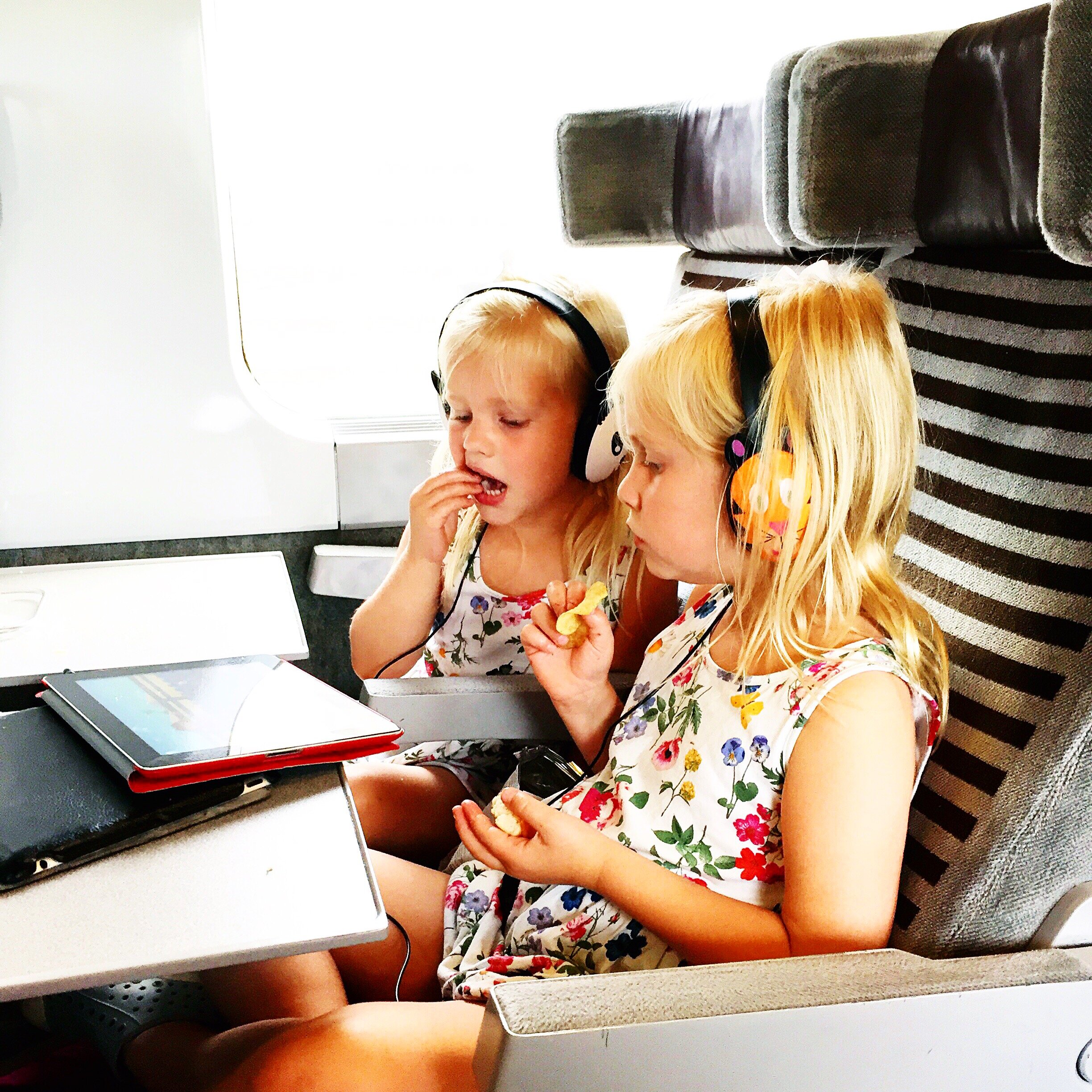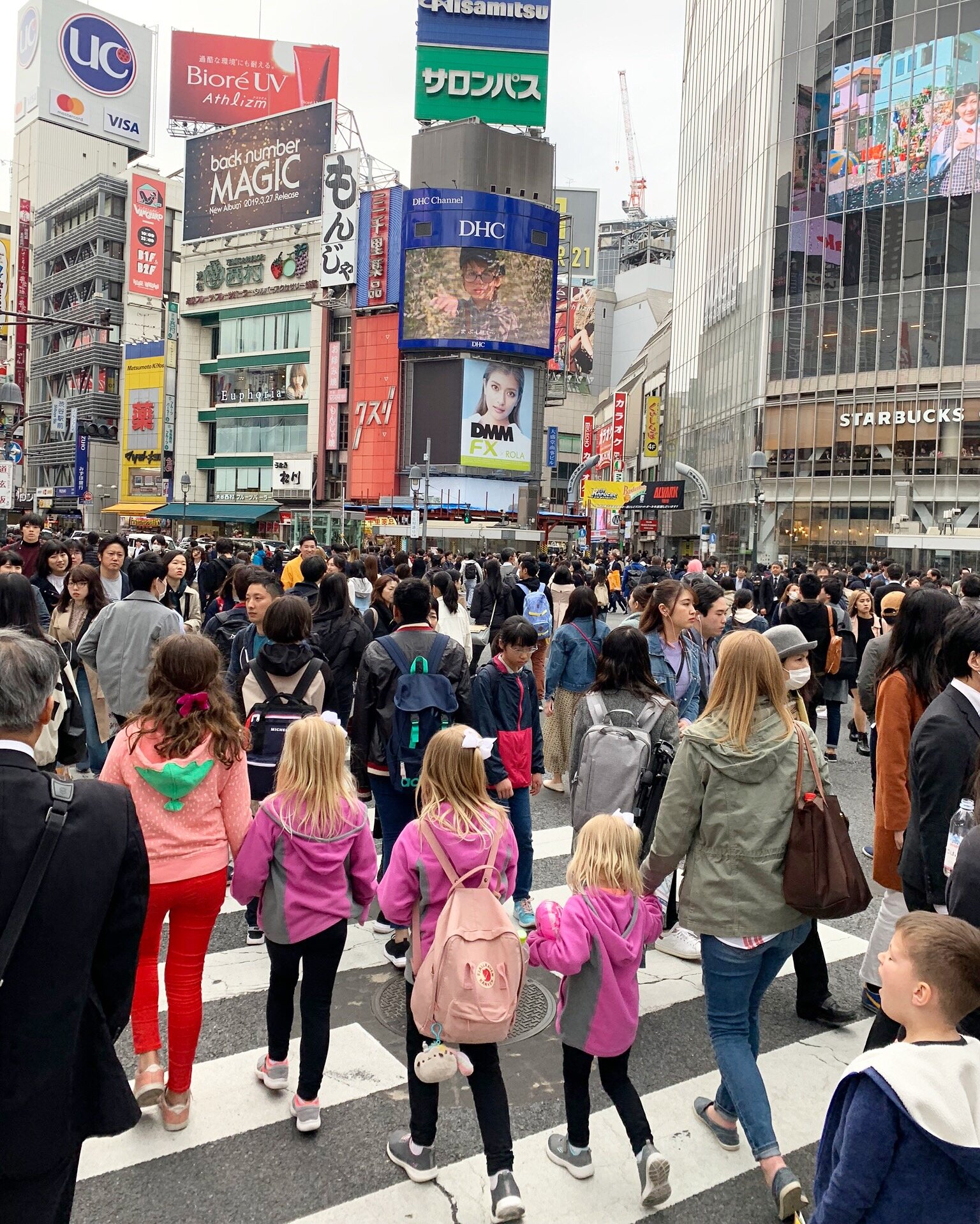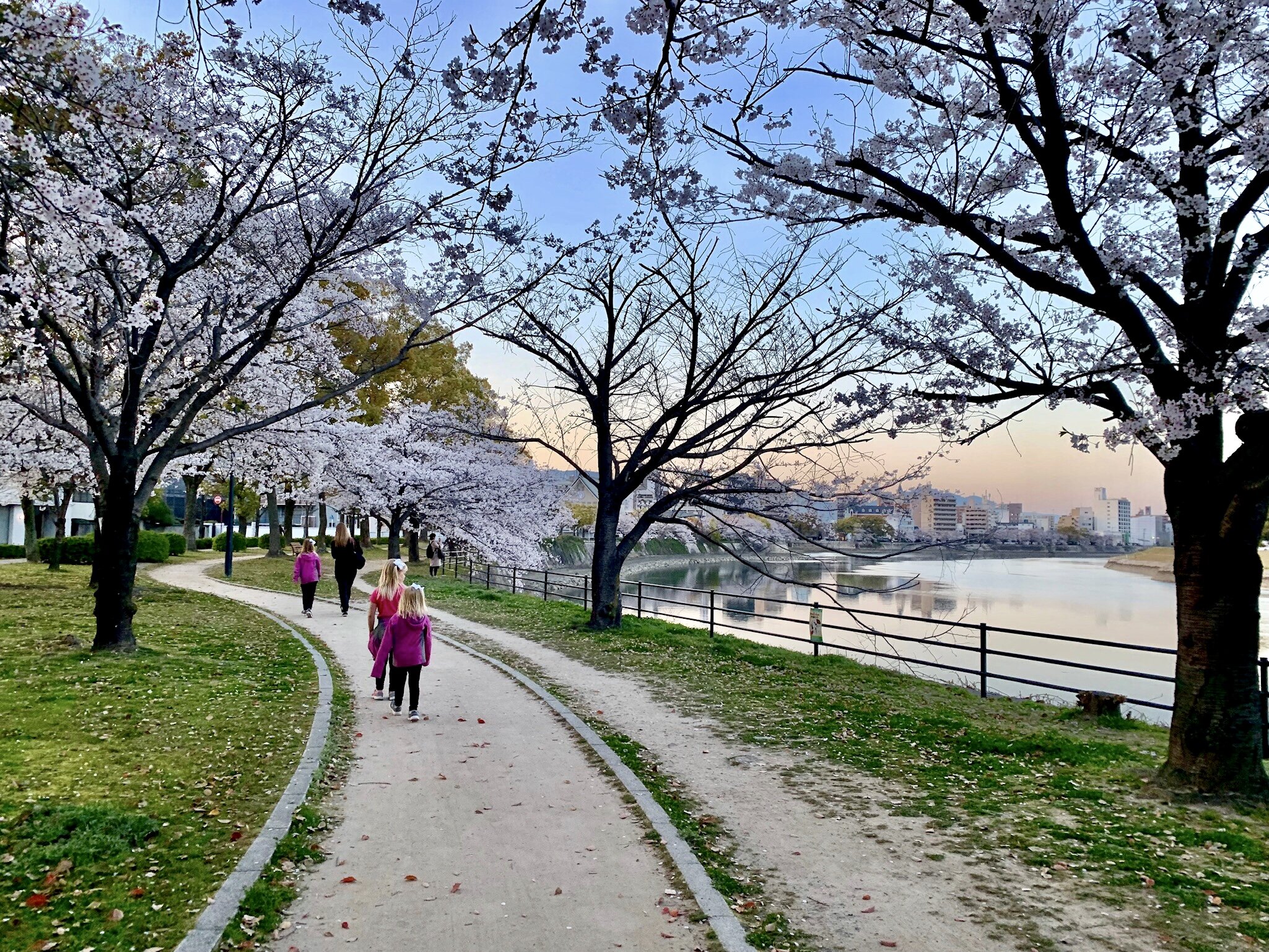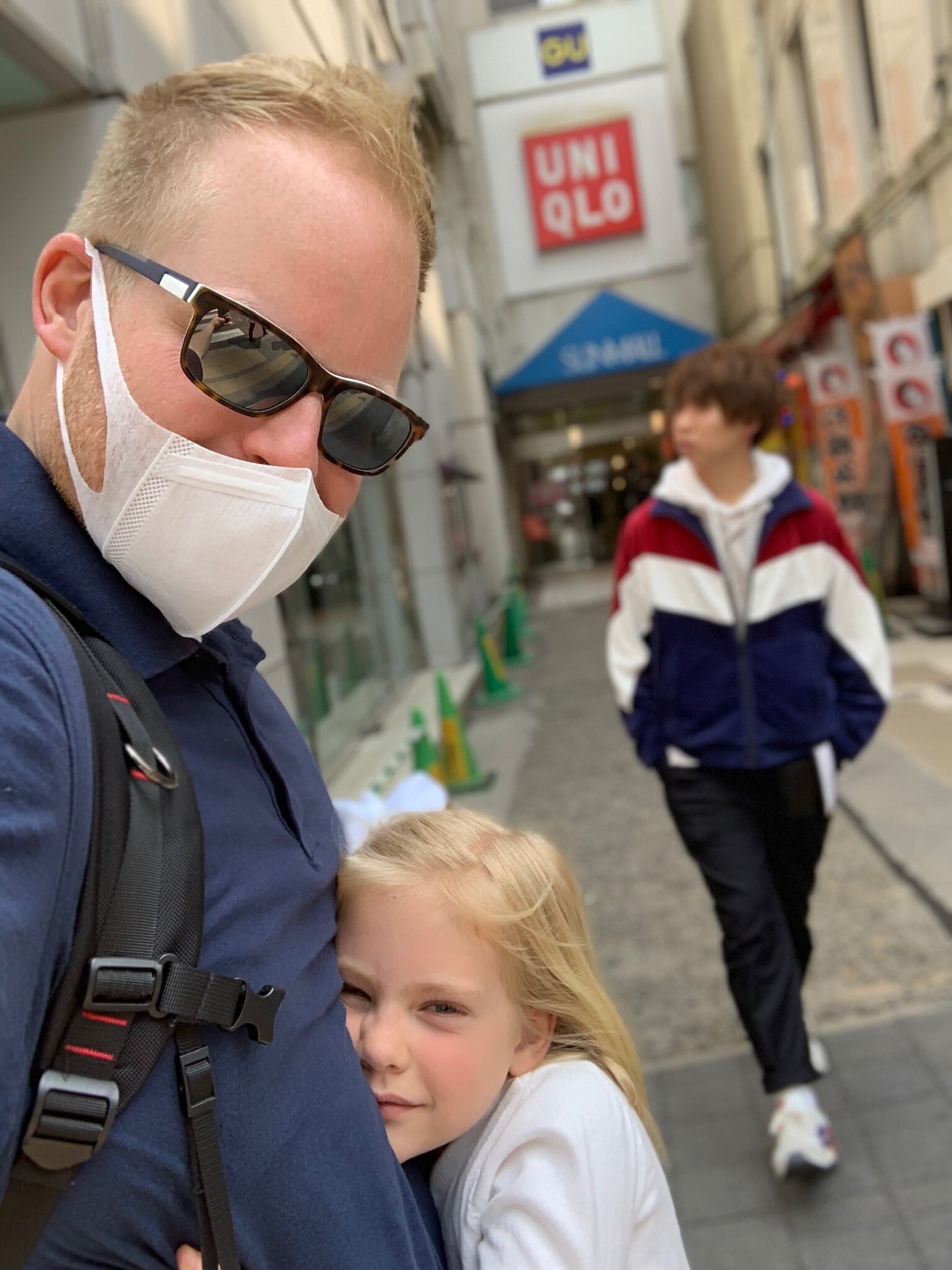If you are a family that likes to travel, like us, then the recent coronavirus outbreak (COVID-19) has probably left you wondering what to do about upcoming travel plans. Lots of families we talk to are wondering how to handle spring break plans or if they should keep their upcoming plans or reschedule. We have been looking forward to spending our spring break in Thailand, Singapore, and Bali and every day are wondering if we should cancel. But, we haven’t — yet.
We thought it would be helpful if we put together some suggestions for other families to think through as they assess what to do about upcoming plans. If you are planning to travel, or just making future travel plans, and the coronavirus is still around you need to make an informed decision. We think every family needs to decide what is best for their situation, and all situations aren’t the same, but maybe some of these ideas will help you come to some conclusions for your family.
1. Assess you family’s risk level. We think the first thing you need to think about is YOUR family. Some things to think about are your health, employment, financial risk levels, and children’s ages. First, you will want to think about how healthy your family is —including your extended family that you could put at risk. If you have health conditions that could make you more susceptible to or be exacerbated by a coronavirus diagnosis, you may need to be more cautious with travel. We visited with our local travel clinic last week and the travel nurse looked at our overall health records and said that with our current health and kid’s ages we were only likely to have mild symptoms if we got the coronavirus. In addition, he shared information about a JAMA report that indicated most people infected with coronavirus were between 49-56 years old and most had underlying illnesses. Children don’t seem to be as affected by the coronavirus at this point, although that could definitely change. You will also want to think about your employment. If you were to get quarantined or were unable to work for health reasons, what are your options? Can you work remotely? If you got stuck in a foreign country, how would your employer respond? Because my husband is an entrepreneur he is able to work remotely, but probably wouldn’t want to have to do that for an extended period of time. Lastly, think about the financial risks your family is willing to take. If you are booking travel, are you making sure to book refundable hotels and flights? When do you have to cancel by? Are you willing to just lose money? If you get stuck somewhere and have to spend extra money on flights and hotels, how does that fit into your budget? Do you have extra savings or insurance for health care needs that could pop up? Could you handle not being paid for two weeks if you had to be quarantined and couldn’t work? In terms of your children, you would want to consider how they might handle being quarantined or being separated from family members. Families with teenagers might have a different risk profile than families with small children. Before you make the decision to travel, think through some scenarios and make sure you are comfortable with any problems that could arise.
2. Get informed about any travel restrictions/advisories. Travel restrictions/advisories are changing daily as governments try to get the coronavirus under control. You need to know the latest information as you make decisions to travel. Because we live in the U.S. we are constantly monitoring the Center for Disease Control (CDC website) for travel recommendations as well as the U.S. State Department travel advisories. We are also monitoring airline websites and cancellations as they all put out different policies regarding travel to various countries. Additionally, in the U.S. the government continues to announce new screening procedures and we are trying to keep up on any advisories through monitoring several news channels. If you still choose to travel when your government advises against it, make sure you understand the consequences and are okay with any quarantines and restrictions that might be put on you. In particular, if you are traveling with children you will want to read any fine print and clarify any government travel policies to avoid major travel hiccups that could leave you in an uncomfortable situation.
3. Consider the country/destination you are traveling to. Not all travel is created equal right now. Some countries haven’t gotten the coronavirus yet and travel seems relatively safe, while other countries are in lockdown. For example, if you are going to Japan or Italy, you will want to read up on how these countries are handling the coronavirus. You will want to look at the restrictions they are putting on travelers from various countries, their screening processes, their healthcare options, etc. Given how quickly the coronavirus seemed to surge in Italy and South Korea, it is important to continue to check news about your destination regularly. Since we are hoping to travel to South East Asia in another month, I have been monitoring each country’s local papers, their government advisories, and the number of coronavirus cases. We have been reassured by how Singapore has been handling the coronavirus spread, but have also been concerned by the lack of coronavirus cases reported in Indonesia (both are countries we are planning to go on our trip). As we were writing this article Thailand decided to potentially quarantine passengers from South Korea and Singapore so that may affect our trip. You will also want to get a sense of the daily affects of the coronavirus outbreak in your planned country — for example, how often you might need to get temperature checks, extra screenings, hotel policies, potential quarantines, and how you might be treated should you get infected. The more information you can get about how your destination is handling the coronavirus (or how they plan to handle it) the better.
4. Are you traveling domestic or international? If you are still in the midst of travel planning, you are probably trying to decide whether to stay domestic or travel internationally? We have been discussing several alternative spring break plans if we our plans get changed and we have ideas for both domestic and international destinations. It’s almost like a game of whack-a-mole right now to see where the coronavirus might pop up next. If you are planning to travel domestically you will probably see less disruptions unless you are traveling to a current hot bed area, but that continues to change. You will still want to keep in mind crowds and activities (more on that later) but if you are living in the U.S. you are still generally safe to travel, according to the CDC, and the CDC still provides some suggestions for precautions to take when traveling in low risk areas. You will want to keep abreast of all of the latest updates. If you are considering international travel, you will want to consider locations carefully and assess the risks in those countries as mentioned above. In addition, you will probably need to be prepared potentially for extra screening and trip delays. However, just because there are some travel advisories doesn’t mean you need to cancel all international travel. For example, as noted in a recent Town & Country article, the CDC has not broadly advised against European travel because for healthy people there is no reason to cancel trips. Of course, this may change.
5. Are you road tripping or flying? As you are finalizing your plans there are things to think about depending on how you are traveling. If you are planning to road trip to your destination you probably have a lot more control over your virus exposure. Things to consider might be: where to stop and keeping safe at gas stations/restaurants and in public restrooms along the way. Generally speaking, road tripping should be a way to minimize risk of coronavirus while still getting to travel if you follow all of the usual CDC recommendations for staying healthy (hand washing, etc.). The full risk assessment of your road trip will also depend on where you are ending up (For example, visiting Disneyland might put you more at risk than a secluded beach house). If you are choosing to travel by airplane, you will have a few extra things to think about including protecting yourself and kids’ health, possible additional screenings, and potential delays. Aside from a lot of people wearing masks, domestic airplane travel in the U.S. hasn’t been affected much by the coronavirus — yet. That could change in the near future if restrictions and additional screenings are put into place. As mentioned above, if you choose to fly internationally you will want to stay aware of any airline restrictions or screenings. National Geographic suggests some ways to stay safe from the coronavirus while traveling including how to pick the best seat on the airplane. In addition, if you are flying you will want to consider other potential areas of exposure like waiting in lines at the airport, transportation to and from the airport, exposure on the airplane, public transportation to your destination, etc. Whether you fly or drive, you can minimize your risk for the coronavirus if you take precautions!
6. Consider what activities you want to do. When assessing whether to cancel our latest trip we’ve talked a lot about whether activities we want to do could become limited at our destination. If we are spending a lot of money on a vacation (or even a small amount) and a lot of the activities we plan to do are being cancelled, we think that is a good reason to reconsider travel. This part of the decision comes down to what your expectations are for your trip. If you plan to spend a lot of time wandering museums and markets and festivals and your destination decides to close and cancel them all will you be disappointed? We have started looking through our tentative itinerary for our trip to see what activities are our highest priorities and what the likelihood is that they will be cancelled. Since we are visiting South East Asia and a lot of our trip involves hanging out on a beach, we haven’t noticed too much that would be affected. We have heard that many restaurants and hotels will check your temperature upon arrival, but aside from that our trip doesn’t involve a lot of touristy activities that could get cancelled. If we had planned to visit Japan for the cherry blossom festivals, like we did last year, we might be disappointed to arrive and find out many festivals have been cancelled and large gathering have been discouraged. So, as you assess whether to cancel or keep your travel plans you will want to look closely at your itinerary and also check with any tour operators or checkout the websites for any sites you plan to visit. Alternatively, because the coronavirus is scaring a lot of people away from traveling right now, if you do decide to travel you may end up taking advantage of some less crowded destinations.
7. What about lodging and airfare? One of the reasons we haven’t cancelled our trip yet is because our hotels can all be cancelled up until 24 hours before we arrive AND our airfare will be refunded if we need it to be. It isn’t always cost-effective to book refundable travel, but since we’ve had enough experiences at this point where we have needed to cancel at the last minute, we almost always at least book refundable hotels. In this particular case, Delta is refunding or rebooking our airline travel because we were originally scheduled through China. If you are currently planning travel for the summer or are reconsidering your spring travel and making new plans, you will want to keep your bookings very flexible. That might mean paying a little bit more for flights and lodging. Many people we talk to in our Instagram community have just lost money because their travel plans are not refundable. This shouldn’t scare you from continuing to plan travel right now, in fact now might be a good time to capitalize on some good travel deals, but we suggest you make sure to consider whether you can get a refund if needed or get travel insurance to cover your situation (more on that next).
8. Deciding on Travel Insurance. Do you have travel insurance or are you wishing you had gotten some? Well, not all travel insurance will help you in a coronavirus situation. In fact, very few travel insurance policies will cover cancellations related to the coronavirus. We purchased our travel insurance through Delta’s partnership with Allianz but most Allianz policies do not cover losses covered directly or indirectly by this epidemic. In addition, because the coronavirus became a “known event” on January 22, 2020 any Allianz policies purchased after this time exclude any losses caused because it was a foreseeable event. Whether or not you agree with this type of policy, you will want to read the fine print on any travel insurance policy you buy. The only travel insurance policy that seems to cover the coronavirus going forward is a “cancel-for-any-reason” insurance policy and you can read more about these policies and others in this USA Today article. Our friend Evie Farrell wrote about why she is still going on her trip to Japan, despite the coronavirus warnings, but she also got insurance from Cover-More before she left to just cover any health problems related to the coronavirus while she is traveling. So, before you go on your next trip, consider whether or not travel insurance would be helpful.
9. General precautions to take. So if you’ve decided to still go on your trip, you are going to want to make sure to take any necessary precautions to stay safe on your trip. This will mean practicing good hand washing hygiene, staying away from large crowds (the WHO calls this practicing social distancing), avoiding touching your eyes, nose, and mouth, practicing respiratory hygiene (to avoid spreading droplets), and seeking medical advice early if necessary. These precautions are important whether you are traveling just within your community or across the world. We’d also suggest carrying hand sanitizer (a lot of places are out of stock worldwide) and also carrying basic medicines for colds/flu/fevers. In particular, if you have small children you will want to carry any children’s medicines as those can be hard to obtain. You will also want to consider healthcare options at your destination and make a family plan should anyone get sick and how to handle any other issues that arise.
10. Stay flexible. One of the most important things you can do if you are still planning to travel during the coronavirus outbreak is to stay flexible. The coronavirus outbreak seems to change from day to day and new hot spots keep popping up. You can check out these maps from Johns Hopkins that track the virus spread. Flexibility is already important when traveling because things often go wrong, especially when traveling with children. You will want to build in extra time for delays and prepare to improvise as necessary. A recent Washington Post article also suggests having backups for everything, “Have backups for your backups for everything from your communication devices, batteries, food/water, medication/eyeglasses, financial tools, transportation, lodging, airfare, etc.”
Our family is currently re-assessing our plans to visit Thailand, Singapore, and Bali in April because our flights to South East Asia go through South Korea. Originally our flights were booked through China and we re-routed through South Korea when the China flights got cancelled. Our South Korea flights haven’t been cancelled by Delta yet, so we are still assessing our options and hope to make a decision in the next two weeks. Like most of you, we need to stay flexible.
Hopefully this gives you a lot to think about. Travel during the coronavirus, especially travel with kids, should be carefully considered. We keep reminding ourselves that eventually the coronavirus will die down and we can get back to our regular travel lifestyle, but for now we might need to slow down a little and be more deliberate about the travel choices we are making for the sake of our family’s health and safety.
We hope you will make the best decision for your family, whatever it is. We’d love to hear your thoughts and how your family is adjusting your travel plans (or keeping them) because of the coronavirus. You can find us on Instragram at @3KidsTravel or on our blog for more of our travel tips, itineraries, and the ups and downs of family travel with our three girls.
Disclaimer: Any decisions you make about your family’s travel should be made using a wide range of resources and expert opinions. We are not health experts and the information we have shared above only gives suggestions to consider as you make your decision. The responsibility for making an informed decision for the health and safety of your family is yours.












